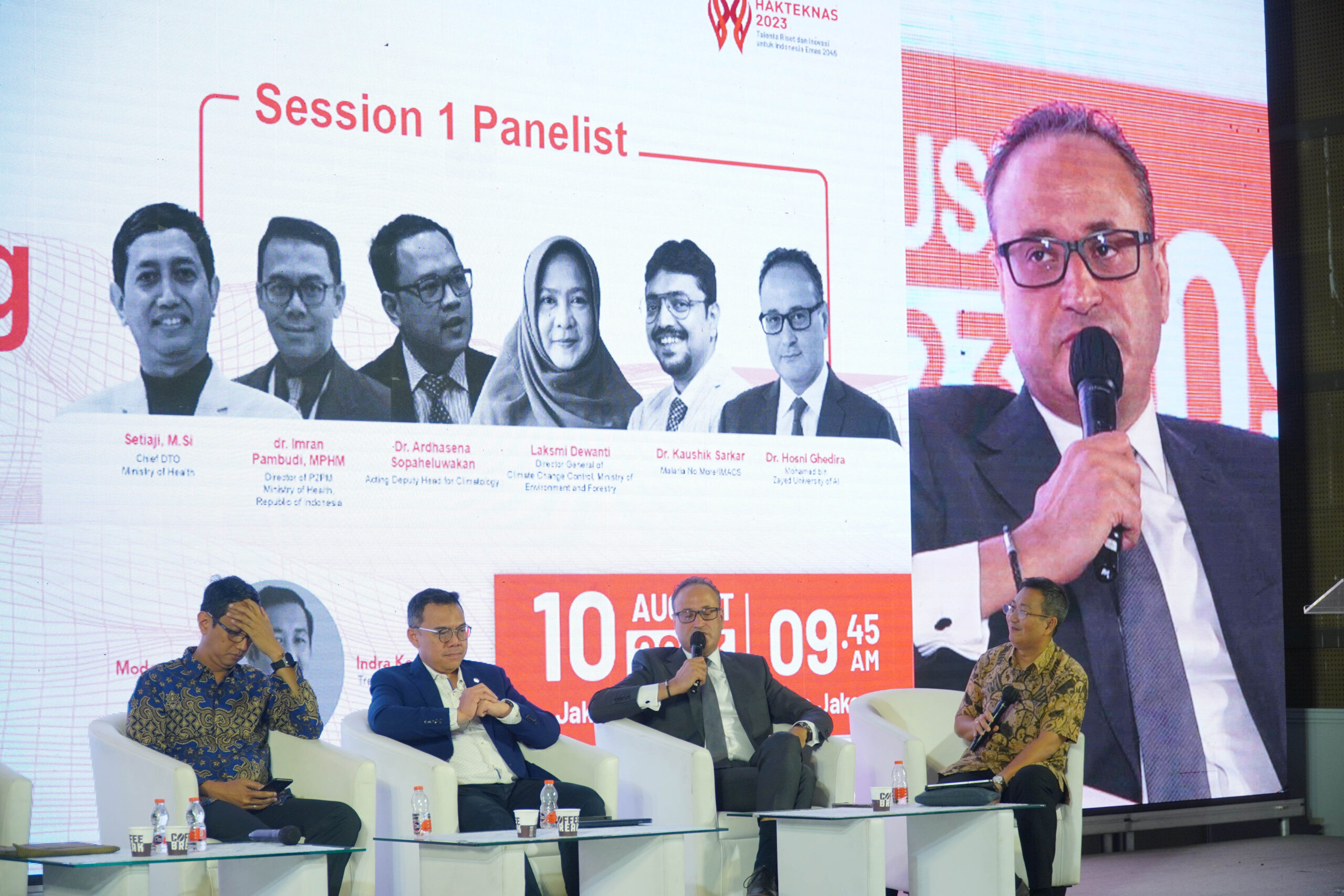This month, at the Artificial Intelligence Innovation Summit 2023 in Jakarta, Indonesia, Forecasting Healthy Future’s Managing Director of Strategic Initiatives, Kelly Willis, discussed the role of AI in driving climate + health solutions during her opening remarks ahead of the panel discussion entitled, “Unleashing the Power of Artificial Intelligence.” Below is an excerpt of Willis’ opening remarks:




The world is facing a climate driven health crisis and Indonesia is on its front lines. Situated on the equator and surrounded by water, your country is among those that will be most impacted, soonest.
For all of us, though, rising temperatures, changing rainfall patterns and extreme weather events are affecting every aspect of our lives, and our health is no exception.
Forecasting Healthy Futures was launched in 2020 to raise awareness of the health threats posed by global warming and to promote investment in innovative solutions to meet those challenges. As a coalition of health and technology organizations, we brought both the medical science and evidence base and a suite of sophisticated - but practical - technical solutions to protect human health and prepare for the challenges ahead. Above all, Forecasting Healthy Futures seeks to put a human face to the climate imperative to make clear that the climate crisis is a health crisis and to inspire more assertive action, investment, and innovation.
Decades of gains in global health, quality of life, and life expectancy are at risk.
From A to Z, or from asthma to zika, nearly every disease is worsened by the effects of climate change. In addition to the effects of extreme heat on a wide range of health conditions, and the food insecurity arising from droughts and flooding, global warming threatens to increase the spread of many infectious diseases and put new and vulnerable communities at risk.
In Indonesia, of particular concern, is dengue fever. The global population at risk of dengue is expected to nearly double by the year 2050. Of course, modern medicine offers us many tools in our fight against climate sensitive diseases - vaccines, therapeutics, vector control strategies - are all improving rapidly and becoming absolutely essential components of a climate-resilient health system.
But artificial intelligence may be our strongest line of defense. Because even as global warming threatens to increase the spread and volatility of infectious diseases, our ability to predict and prevent those outbreaks is also increasing, and at an amazing pace. Scientists around the world are using novel sources of climate data, high resolution satellite imagery, a network of meteorologic and atmospheric and moderating facilities, and Artificial Intelligence (AI) to create actionable tools for health system decision makers. That level of knowledge, predictive capacity, and actionable intelligence is a big part of what constitutes climate resilience in vulnerable health systems.
More investment is needed in effective surveillance systems, the use of sophisticated climate date sources, and primarily, the application of artificial intelligence to better anticipate and avoid the worse effects of climate change on the spread of disease and other threats to our well-being.
We are essentially engaged in a race to use the data and AI to advance disease elimination faster than global warming can set us back. Climate-resilient health systems require sophisticated data systems, Artificial Intelligence, and the local capacity to apply them effectively. Forecasting Healthy Futures welcomes the opportunity to partner with all of you to build a “Climate Smart Indonesia” and protect the health of your population from the future threats of climate change.”
Watch the full panel discussion here.
###
About Forecasting Healthy Futures
Forecasting Healthy Futures is a global coalition of leading health and technology organizations committed to mobilizing the political will, financial resources, and innovative solutions needed to protect global health gains from the threats posed by climate change. Malaria No More convenes and leads the consortium. Forecasting Health Futures’ partners include Reaching the Last Mile, Mohamed Bin Zayed University of Artificial Intelligence, the Global Institute for Disease Elimination (GLIDE), PATH, the Tableau Foundation, IBM’s Weather Company, and the Institute for Health Metrics and Evaluation (IHME). For more information, visit: www.ForecastingHealthyFutures.org.

